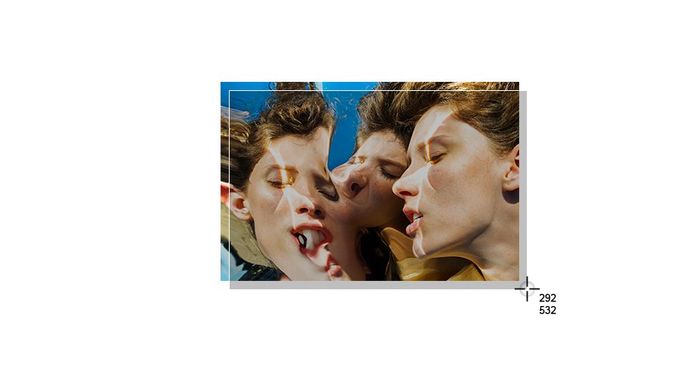Screen Shot Magazine: Emily Chapps Interview
New gen bosses: Emily Chappell, marketing strategist and creative producer on how being nice will take you places New gen bosses is a new series created to guide and inspire more people to go out there on their own, either as new business founders or freelancers. And what better way to do that than to ask the ones that already succeed at it? We want to know about big fuck-ups and even bigger successes, and the risky decisions they had to make along the way. We want to be the last little push you needed.
Link to article: https://bit.ly/ChappsScreenShot
Or Scroll for the read!
Job title: Marketing strategist & creative producer
Industry: Marketing
Company founder or freelancer: Freelancer
Website: Chapps.online
How long have you been doing it: 3 months
Age: 24
Location: London
What pushed you to start on your own?
I perhaps have more ideas than is good for me, and with experience in tech-startups, social media, events, and production there are a lot of avenues my train of thought finds possibilities in. With this, I felt I needed to be at the conceptual level of marketing and find a situation that used my full knowledge base.
So, I met mentors, fellow creatives and friends who turned my ‘felt’ into a ‘knew’. Getting that reassurance, my passion for making ideas happen plus having time to action personal projects was the full push I needed.
What was the very first thing you needed to do to set everything up?
They say ‘your network is your net worth’, so I was able to start freelancing through email introductions. My peers knew me and my skill-set, so they introduced me to ideal job opportunities and the right people to work with. If you’re talented and hard-working, people are keen to introduce you as it makes them look good too and you’ll owe them a favour.
To iterate, this isn’t a simple case of ‘it’s who you know’, but a 5-year-long aggregation of ‘who you can meet’, doing favours, being nice and earning respect. Long-term investments make for the most lucrative ‘net worths’, if you get what I’m saying?
What was the riskiest decision you had to take?
As it’s still early days for me, no decisions have been super high-risk but if I had to pick the riskiest I would say probably backing myself.
When you start working as a freelancer you just presume that you’ll do great work. You only fully know if it’s working once you get feedback from clients or positive performance indicators. Thus far, it’s all panning out and I’m working hard to keep this the case.
What was a skill you didn’t foresee needing that you had to learn?
Learning how people work and how they want to be worked with. Some people want things justified, others just want the solution. Some people like WhatsApp, others only emails. Some people are 9 to 5, others are 24/7. Some people need to be asked specific questions in order for you to get the right answers, while with some others you only have to give answers to get the right questions.
A new understanding comes with a new person, so remember to share your way of working (clients might prefer it) and then to adjust in order to find the perfect process.
I’m still waiting for a client who loves Slack as much as I do, so holla if that’s your fave communication tool and need a marketeer!
At what moment did you realise that this was going to work out?
I’ve always had faith it would work out but money in the bank did make it feel legit.
What did you spend your money on?
Accounting software, books (How not to plan by Les Binet and Sarah Carter is a good one for budding strategists out there), Adobe tutorials, co-working space, and producing t-shirts to do some marketing research and development with.
What was your biggest fuck up?
Again, it’s all still early days, so no major fuck ups but I am waiting for it. Being younger, eager and ambitious comes with advantages like an intimate understanding of gen Z, moving quickly and taking opportunities but I am fully aware that such excitable naivety has its downfalls as well as virtues. I read about startup failures a lot to mitigate this.
Unless did I fuck up by choosing Archivo Black as my website’s font over GT America? GT is nice and all, but surely we’ve hit a saturation point, right? Right?
What was your biggest success?
Creative fulfilment, definitely. Some days I am like: “I can’t believe this is my job,” especially when I am in the mix of a strategy, making a content concept, pitching brand partnerships, inputting on art direction or just going for a rogue idea like a music video pitch or article. Then this makes hearing people react to my work so much sweeter when they say something like ‘this is so smart’, ‘looks amazing’, or ‘thank god you’re here’.
I am really apprehensive of proclaiming myself as a creative but I think it’s something proven and earnt, so it means a lot to hear it from others.
What do you know now that you didn’t know then?
Time allocation, it’s a whole different ball game when you’re freelance with multiple projects and clients, plus thinking about pitching for more work.
Initially, I made myself available to everyone all the time but this desire to be super responsive was counterproductive. I’d get sidetracked from tasks for something I could deal with at a better time. I’ve learned to set expectations by providing contact hours, what I will complete that week and a reassurance that if it’s super urgent, I am on call.
What are three tips you would give someone who wants to start on their own?
One: It’s not who you know but who you can meet. Linkedin, Twitter, DMs, networking events and getting crafty with email formulas, these are essential. When you know several talented people at the same career stage as you or have a mentor—that’s gold dust.
Two: Be nice, even when you’re pushing back or feeling overwhelmed. Explain your thoughts, listen, and talk constructively.
Three: Money is paramount. Save up to start freelancing (I had two rents-worth of cash) or make sure that your first client is certyyy and 100% going to pay you.

